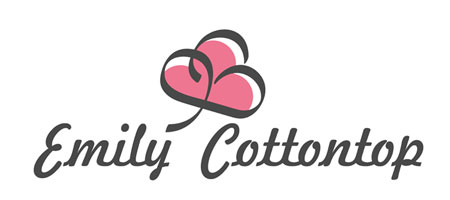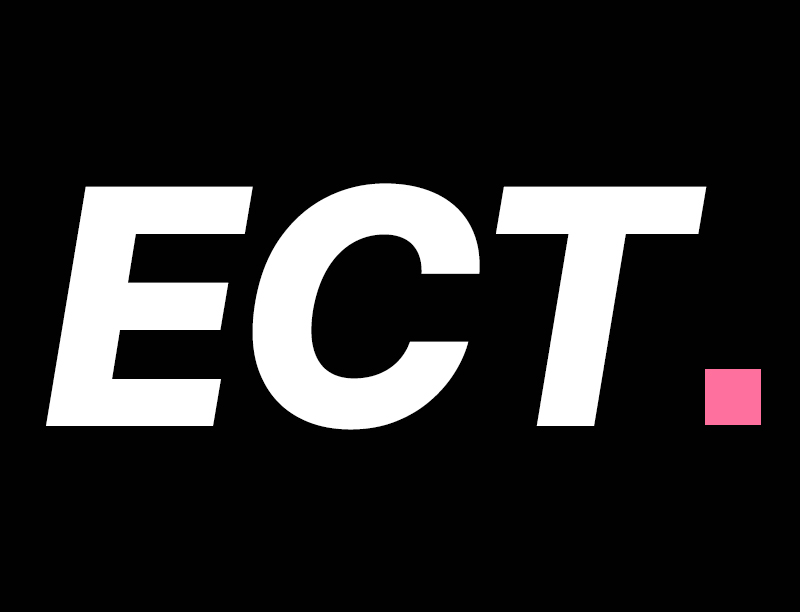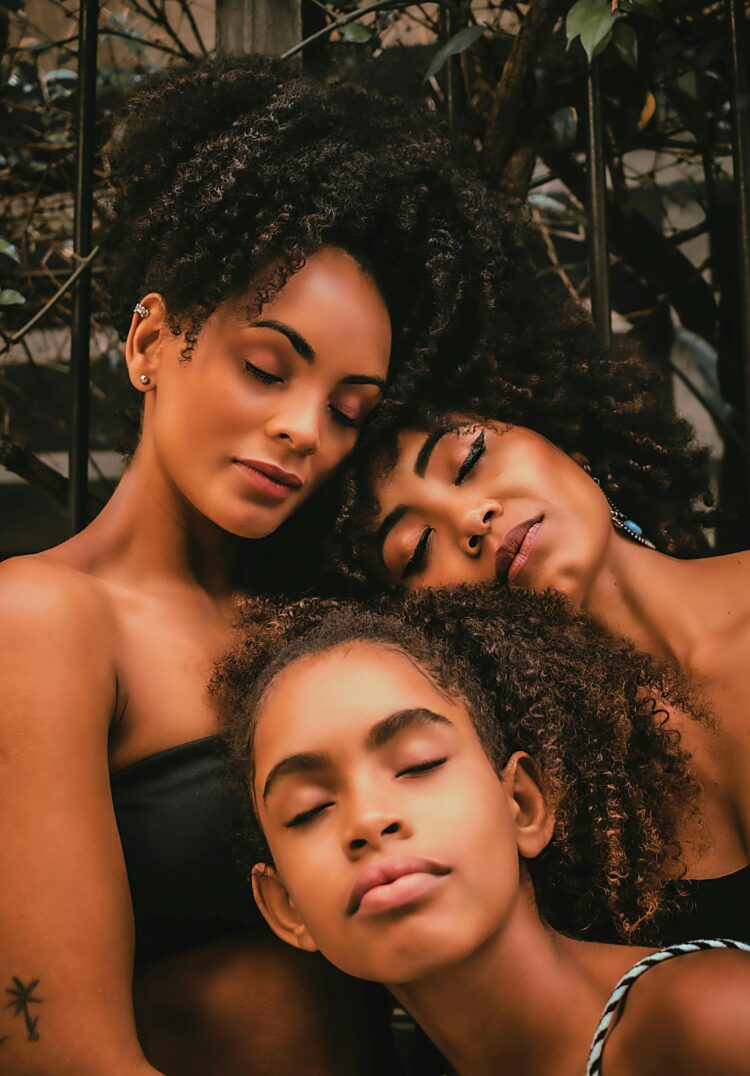Picture this.
You’re standing in front of the mirror, trying to figure out how to make your eyes pop, when suddenly you hear a chuckle behind you. It’s your nana, leaning in with a mischievous glint in her eye.
‘Lisa, brown eyeliner would suit you better. Black might make you look like a raccoon,’ she quips. You chuckle, knowing she’s right (yeah, Gigi has seen it all).
And just like that, you’re transported back to when her wisdom was your guiding light in the beauty zeitgeist. She let you in on one of the best-kept African beauty secrets: the transformative power of a bold red lip, a simple gesture that now serves as your go-to confidence boost.
But it wasn’t just lipstick lessons; she also shared the quirkiest African beauty secret – using dish detergent for bubbles and adding two caps full of olive to achieve the softest skin – a tip you still swear by today.
You see, while glossy beauty magazines and publications flaunt the latest trends and beauty potions, our moms and grandmothers have always held the real gems – age-old African beauty secrets passed down through generations.
From the soothing powers of yangu oil to the magic of pressing a milk-soaked cloth on your face, their repertoire of beauty wisdom knows no bounds, matched only by their infinite patience with our makeup mishaps.
So, let’s celebrate the wisdom and love of these remarkable women by unveiling ten of the most unique and invaluable African beauty secrets, as shared by moms from all corners of the globe.
8 Timeless Beauty Secrets Passed Down By African Moms
North African Beauty Secrets: Dukhan/ Barbecue Of The Body
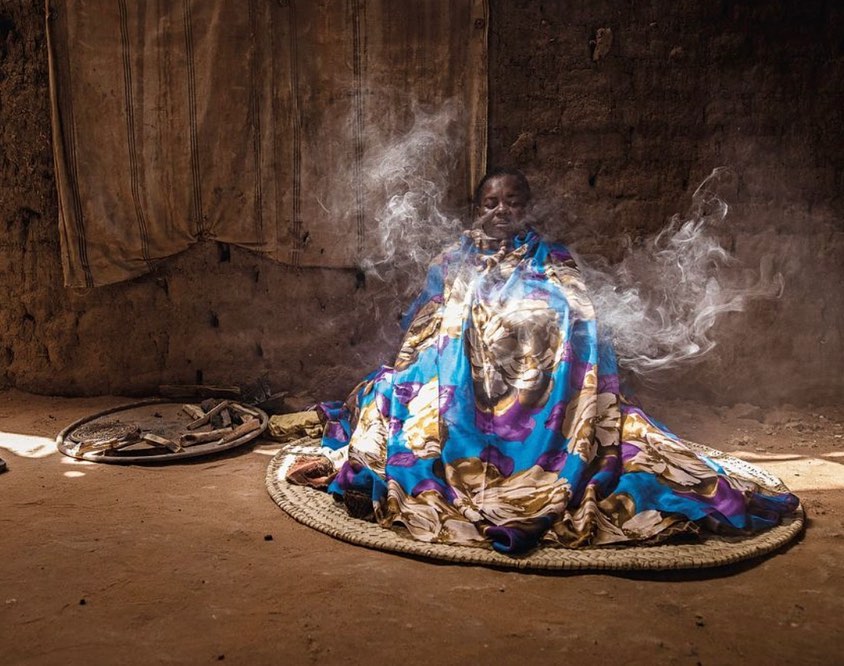
In Sudan, there’s an ancient beauty ritual known as Dukhan, or as we fondly call it, the ‘barbecue of the body.’ Essentially, it’s like sauna aromatherapy but with smoke.
‘Every week, Sudanese wives shed their garments, wrap themselves in a blanket, and sit over pits of burning aromatic woods to cleanse their skin,’ Dr. Noela Magga M.D., a South-Sudan-born American Board-Certified Anesthesiologist, Physician, Mother, and Founder of @tastesofsudan says.
The North African beauty secret dates back to the ancient kingdoms of Nubia and Meroe. Ancient Nubian queens supposedly cleansed themselves in the smoke bath and then met their Kings for intercourse.
Aside from skin cleansing, Dukhan has been associated with various benefits, including detoxification, skin firming, easing menstrual cramps, and even tightening vaginas.
‘Because of its historical and cultural significance, only married women and brides are permitted to partake in Dukhan rituals,’ Zahra Imam, a renowned Dukhan specialist and mother of two, says about the African beauty ritual.
‘In some areas, women are prohibited from leaving their home until three days after the bath.’
As For How The Dukhan Is Performed:
- The woman removes her clothes and dons a light gown.
- She sits on the smoke bath, covering herself with a blanket made of Sudanese Thobe material.
- Additional blankets are provided to trap the smoke.
- The session lasts around 30 to 90 minutes, allowing the heat to open pores and the oils to absorb deeper into the skin, resulting in softer, smoother, and firmer skin.
While traveling to Sudan for this African beauty secret might not be feasible for everyone, places like @bodysmokingspa offer similar experiences. They provide Dukhan body smoking services, organic Dilka body scrubbing, Moroccan Hammam treatments, and more.
For a visual guide on Dukhan, check out this video:
Middle/Central African Beauty Secrets: Chebe Powder
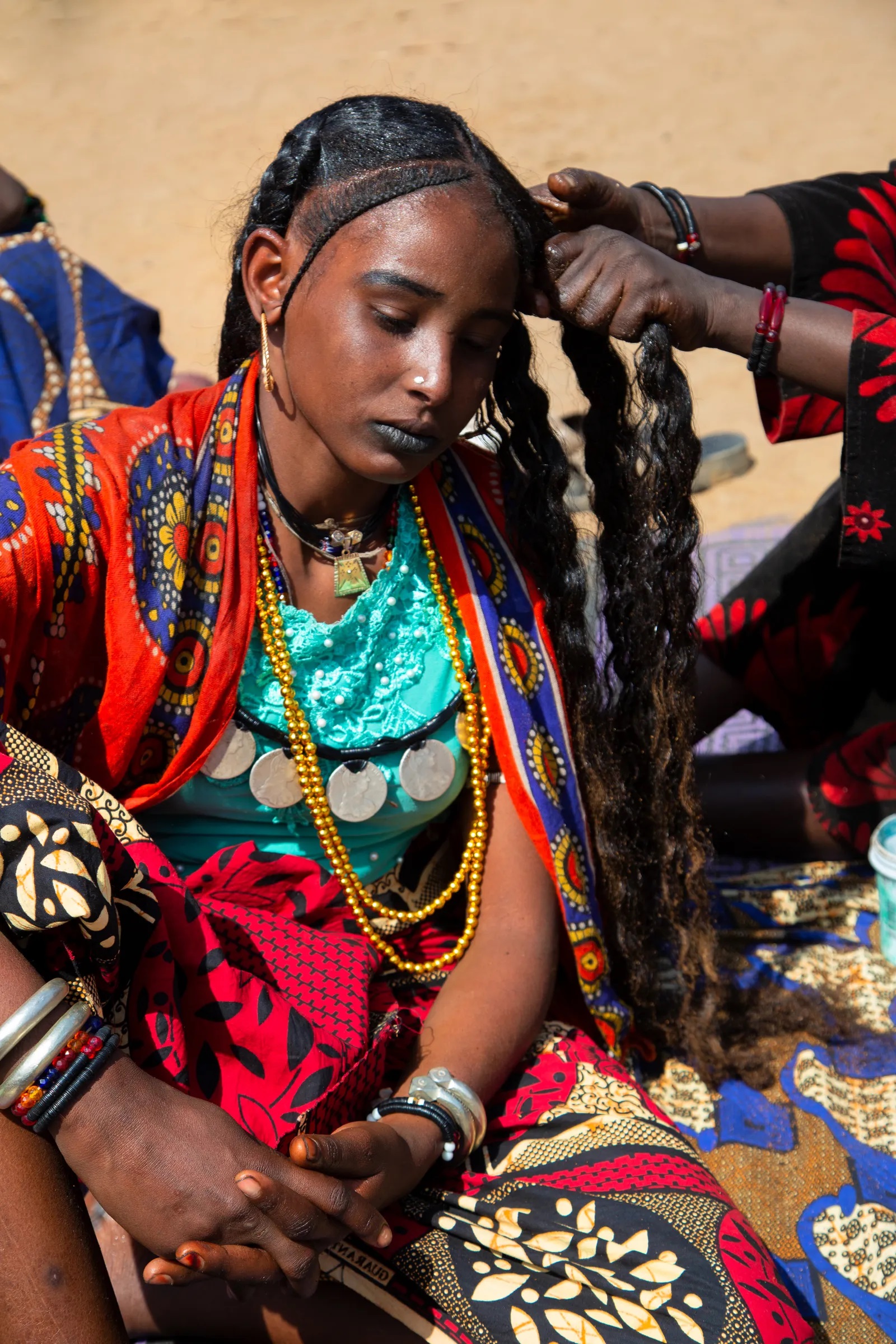
Another well-kept African beauty secret?
Chebe powder.
The natural hair elixir native to the rocky mountains of Chad’s Guera region has been used by the women of the Bassara Arab tribe for centuries and is the key to their famously long, naturally coarse hair that falls well below their belly buttons.
‘Chebe powder is really important to us because we consider long, healthy, beautiful hair as the ultimate symbol of femininity and vitality,’ Salwa Peterson, a Chadian Gorane tribeswoman and haircare specialist, told Vogue in a 2022 interview.‘
So, how does this African beauty secret work?
Well, it’s quite a process.
From February to April, women trek to the mountains to harvest the seeds of Chebe, a native plant with rust-hued flower buds known as croton gratissimus. After months of careful sun-drying, winnowing, and roasting, the seeds are finely ground into silky powder.
Then comes the preparation.
Women set out three bowls: one with water, the second with Chebe powder, and the third with a mixture of oil and butter, often sesame oil and shea butter. Alternating between layers of water and oil-butter blends, they generously apply the Chebe powder from root to tip, braiding their hair into plaits to retain moisture.
‘it’s a long and laborious process, requiring at least a whole day for optimal results,’ Salwa continues.
But today, you don’t need to trek the treacherous mountains. Chebe powder is readily available on platforms like Amazon or in various African stores worldwide. We recommend the Roselle Naturals Chebe Powder Authentic From Miss Sahel Chad ($8).
If you prefer a more convenient option, Salwa Petterson’s Chébé Du Tchad™ Miracle Length Retention, Anti-Breakage Treatment ($18) is your best bet. Formulated with an exclusive variety of organic Chebe seeds, it is clinically proven to promote stronger, longer, and softer hair without the hassle of mixing and braiding.
East African Beauty Secrets: Qasil Powder
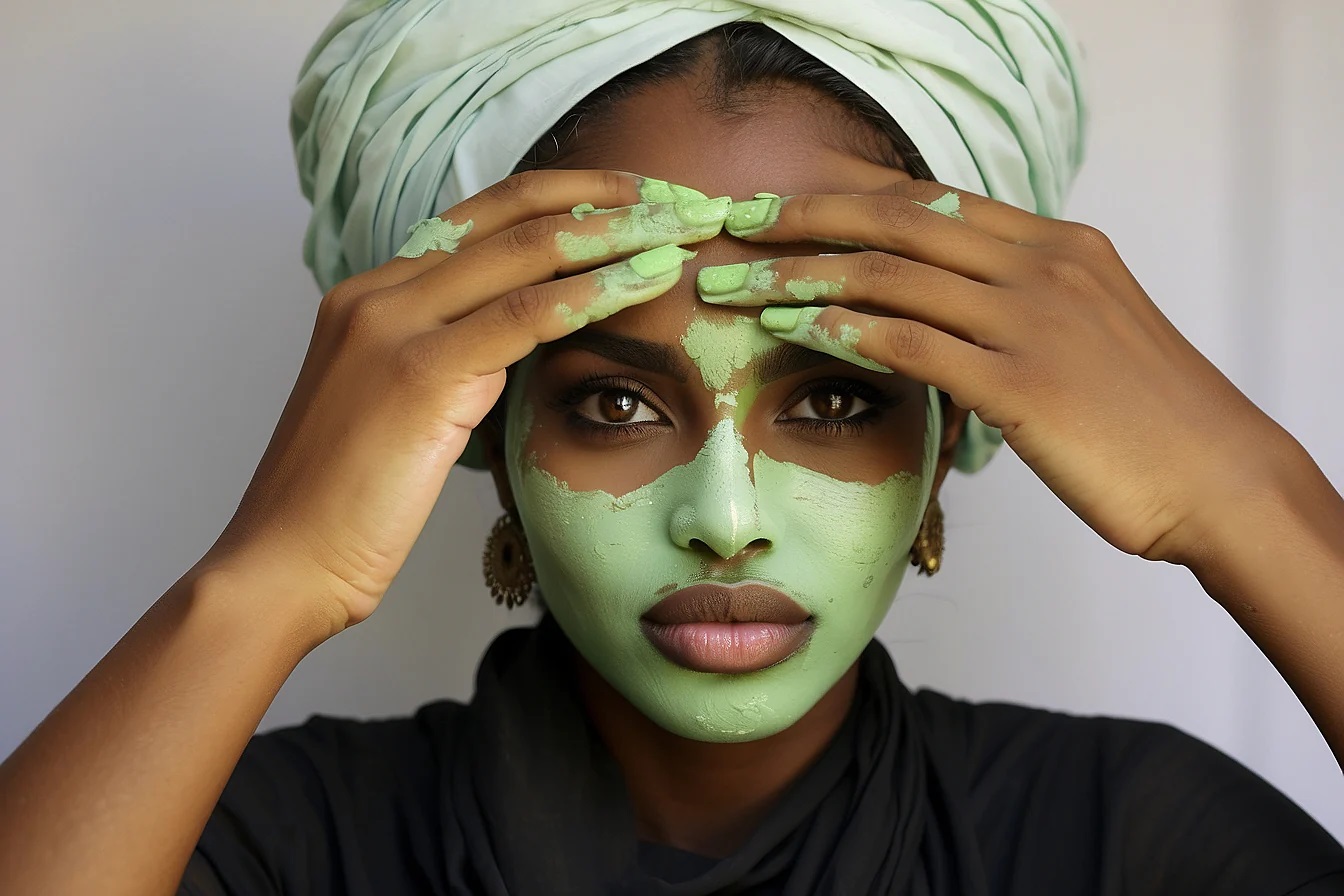
My boyfriend’s mum introduced me to the power of Qasil powder in 2022, and when I say I now look like an 18-year-old gabar qurux badan, I wouldn’t be lying. Okay, maybe 22-year-old, but you get the gist.
Native to Somalia, Qasil powder comes from the leaves of the Gob tree. The leaves are dried and then finely crushed to get the powder, which has been Somali women’s secret to ageless, radiant, and clear skin.
Unquestionably, Qasil is a skincare powerhouse thanks to its ability to blast acne and dark spots, improve the appearance of wrinkles, and safeguard the skin barrier from free radical damage.
It also balances skin’s pH levels, detoxifies skin, reduces hyperpigmentation, and works wonders on sensitive and acne-prone skin. Yep, Qasil powder is considered one of the best-kept African beauty secrets to acne-free skin.
How To Use Qasil Powder In Your Beauty Routine:
- Mix 1 tbsp of Qasil powder with two tbsp of water – if you want it thicker, don’t add more water; if you want a thinner mixture, add two more tbsp of water.
- Blend the mixture using your fingers – I blend the mixture until I get an even consistency. Lumpy textures are one of my biggest pet peeves.
- Apply the mixture – Qasil face mask – depending on your skin type. I have oily/sensitive skin, so I apply it for 5-10 minutes. If you have dry skin, five minutes would be enough. If you have normal skin, 10-15 minutes is recommended. And for those with combination skin, anywhere between 5-10 would do the trick.
- I use the mask two times a week – don’t overuse it or let it completely dry because it can lead to dryness. And after applying, always follow up with a super-hydrating moisturizer to get that glow going.
The best Qasil Powder on the market is The Wonder Plant™ | Somali Qasil Powder ($!5) on Amazon.
@sagaljamaskin Replying to @Hipster Hijabi #qasil #sagaljamaskin ♬ IF YOU SEE THIS FOLLOW ME – Female Rap Verses
West African Beauty Secrets: Threading
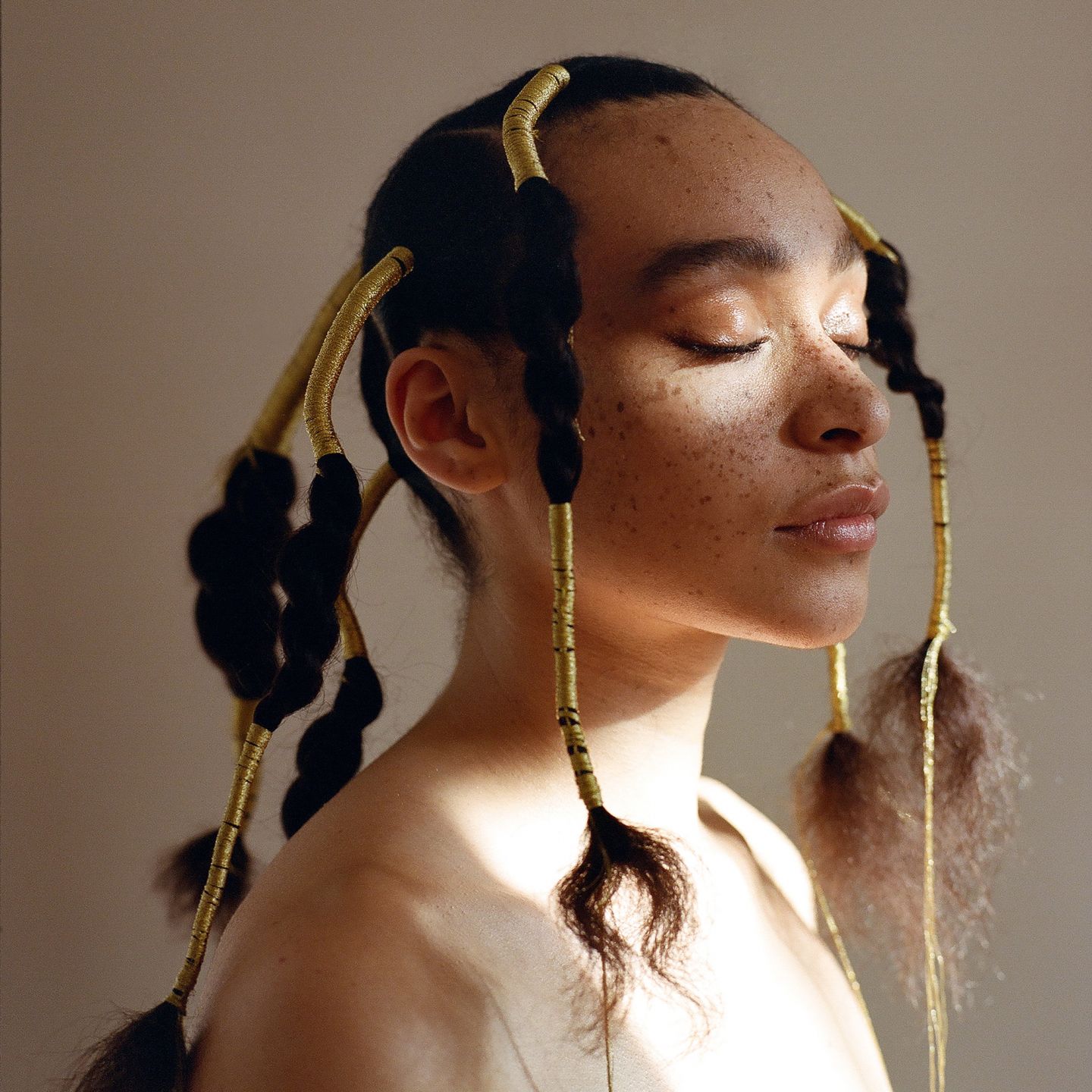
In the era preceding curling irons, flexi rods, and blow dryers, women across regions like Ghana, South Nigeria, and other parts of Sub-Saharan Africa turned to threading to elongate their natural hair.
‘I don’t understand your generation’s obsession with expensive ngwaọrụ ntutu isi (hair tools),’ remarks Mama Ada, an experienced natural hair stylist and mom of four. ‘In our time, all it took was some thread, herbs, and wisdom passed down from our grandmothers to achieve long, beautiful hair. Not all this wahala you guys use.’
So how did they do it?
It was simple.
Using black thread or any color that matched their strands, women would wrap their hair in a corkscrew fashion from root to tip. Unlike the colorful thread wraps popular today, this method allowed the hair to poof out from the thread as it spiraled downward.
This technique was highly valued because it minimized manipulation, reduced hair breakage, and facilitated length retention. It also helped women avoid shrinkage, allowing the more daring ones to create effortless, head-turning styles.
So, before reaching out for your curling iron or perm rods, or if you need to give the twist-outs and braids-out a rest, consider trying this African beauty secret and let us know how it works.
It turned out pretty great for Wambui over here:
Southern African Beauty Secrets: Red Ants Lip Plumper, Yanuga Oil & Crawler Eye Lash Extensions
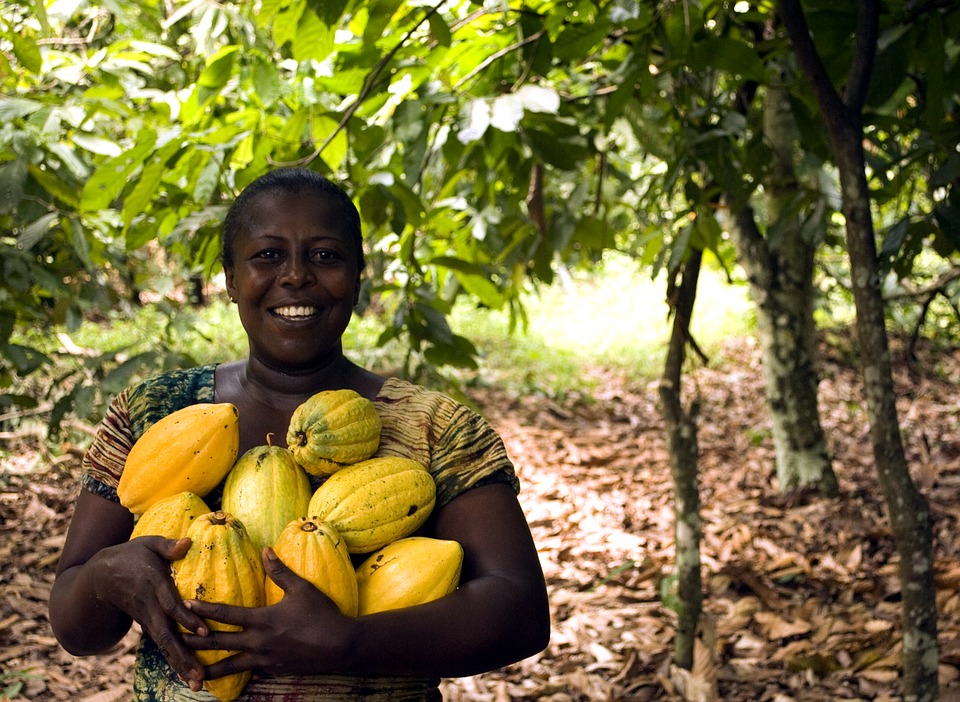
1. Zambia
Pillowy lips have become a prominent beauty trend, spurred by influencers like Kylie Jenner and a slew of #BeautyTok videos. But did you know ancient African women had their method for achieving that juicy, plump look?
Enter red ants.
Yes, you read that right. Zambian women would hunt red ants and harness their venomous bite as an all-natural lip plumper.
‘It might sound unconventional, but when applied topically, red ant venom can stimulate blood circulation in your lips, resulting in a fuller, plumper, and more pouty appearance,’ explains Nice Gugulethu, a board-certified skin specialist and mother of one from Zambia.
And that’s not all.
According to scientific reports, red ant venom can also aid in managing psoriasis. Their venom contains solenopsins, toxins that chemically resemble ceramides (lipid-like molecules essential for protecting skin barrier function and boosting collagen production).
2. South Africa
Have you ever heard of the wonders of chestnut oil? Known as yanuga or yangu oil?
No?
Let us enlighten you. According to Noeline Lethabo, a South African-based beautician, African women and their grandmothers use yangu oil, a rare natural oil native to South Africa, to protect their skin from UV damage.
Yup. A natural sunscreen in all its glory.
Extracted by cold-pressing the seeds of the Cape Chestnut tree, women apply the incredibly light serum oil on their skin and hair every morning – it absorbs quickly, making it ideal for direct application – and go about their day without any skin damage worries.
3. Tanzania
Another weird but surprisingly practical African beauty secret?
Wild crawler silk.
According to Puleng Lephuthing, while everyone tries to understand web crawlers, Tanzanian women gather wild crawler silk and develop it into natural-looking lash extensions.
‘Hii kwetu ni kawaida. Hatupendi hivo vitu vya plastiki. Hizi kope ni nzuri na zinafanana na kope za binadamu kabisa. Huwezi zitofautisha. It’s definitely our best-kept African beauty secret,’ Leila Hassan, a friend and beauty enthusiast, says.
Translation: This is a regular occurrence for us. We don’t like plastic lashes. Crawler silk extensions are unique and resemble your lashes. You wouldn’t tell the difference. It’s our best-kept African beauty secret.
Ancient African Beauty Secrets: Milk Baths
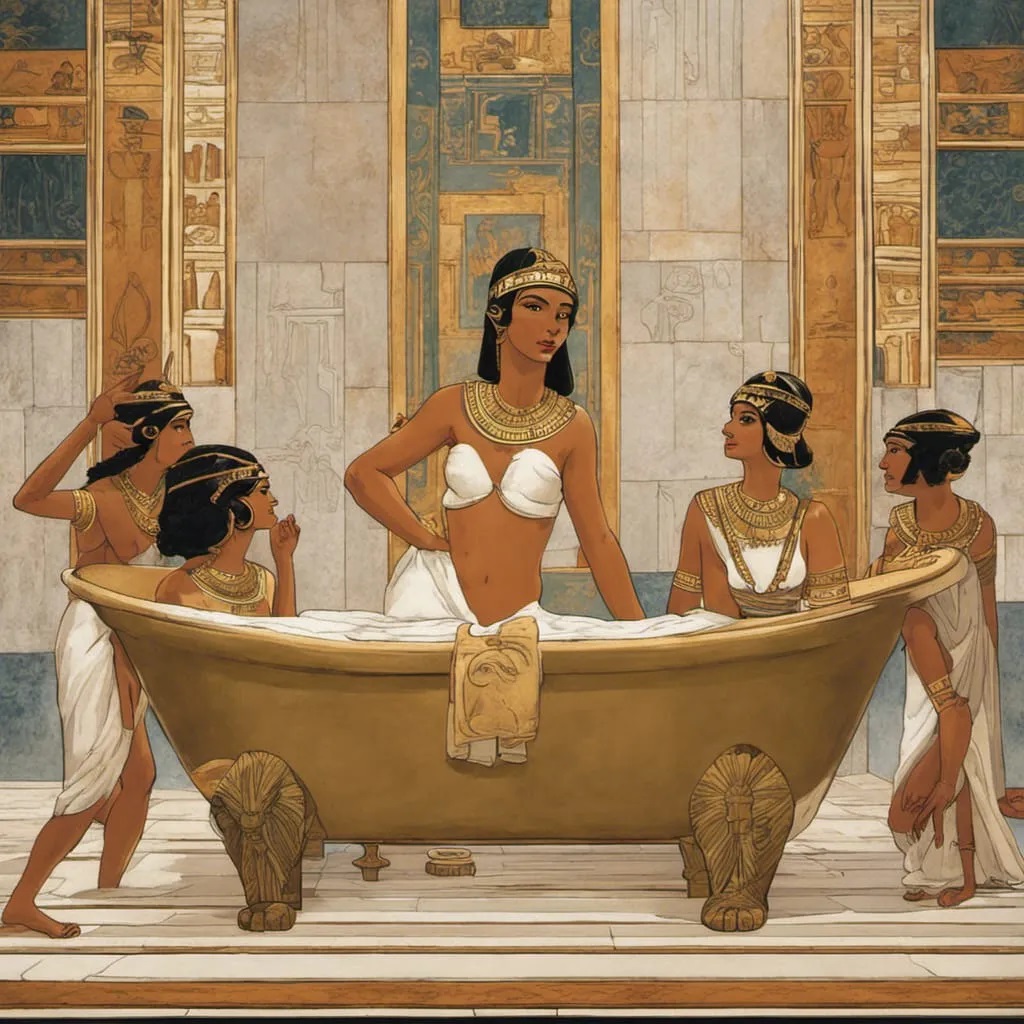
One of the most ancient and best-kept African beauty secrets?
Milk baths.
Yep, you read that right!
According to super African mom Robbin Turner, M.Ed., milk, especially goat milk, contains lactic acid, an alpha-hydroxy acid (AHA), which deeply cleanses pores, fights acne-causing bacteria and keeps skin udderly radiant.
If you need more proof, Cleopatra, the iconic Egyptian Queen, regularly bathed in milk – donkey milk, to be precise – to keep her skin silky-smooth and radiant.
Legend has it that she had a whole entourage of over 700 donkeys to keep her skin glowing. And get this – she even had a couple of young donkeys accompanying her while traveling, all to keep her radiant complexion.
Talk about commitment to beauty!
How to Do Milk Baths Cleopatra-Style:
- You don’t need to fill your tub with milk –add 2 to 4 cups of cow’s milk to your bathwater.
- Soak up to 20 minutes, then gently exfoliate with Luv Scrub’s Mesh Body Exfoliator ($18) to remove dead skin cells.
- Rinse and repeat twice a week.
Not into animal-produced milk?
Try coconut milk (it’s rich in vitamin C, which helps support collagen production) or buttermilk (it also contains lactic acid that evens skin tone).
Rice milk offers numerous health benefits, resulting in a naturally boosted glow, while soy milk is loaded with phytochemicals that smooth skin texture and fight wrinkles.
Still on the topic of baths…
General African Beauty Secrets: Dish Detergent + Olive Oil = Baby Soft Skin
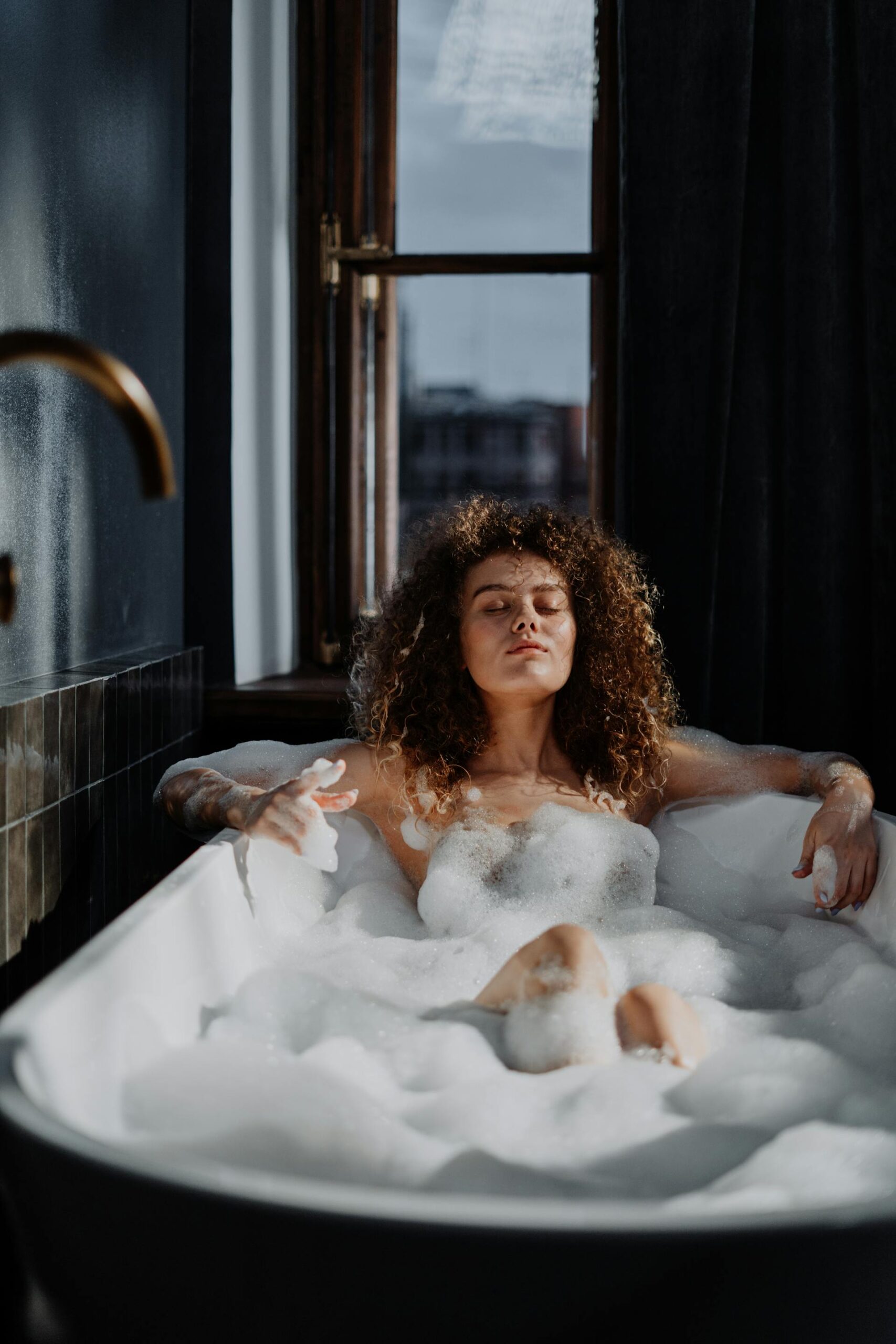
We know people have been using Dawn dish soap for hair growth, but did you know you could use it to achieve baby-soft skin?
According to New York Based Beauty & Fashion Editor Channing Hargrove’s grandmother using dish detergent, Dawn dish soap, or whichever you prefer for bubbles, adding two caps-full of olive oil in your bath and then slathering your skin in the Korres Pure Greek Olive 3-in-1 Nourishing Oil ($42) before toweling off will help you achieve the softest, silkiest and smoothest skin ever.
Is it a proven African beauty secret?
Nope. There are currently no scientific studies backing this, but Channing herself puts a stamp of approval on it.
Caribbean Women Beauty Secrets: Hibiscus
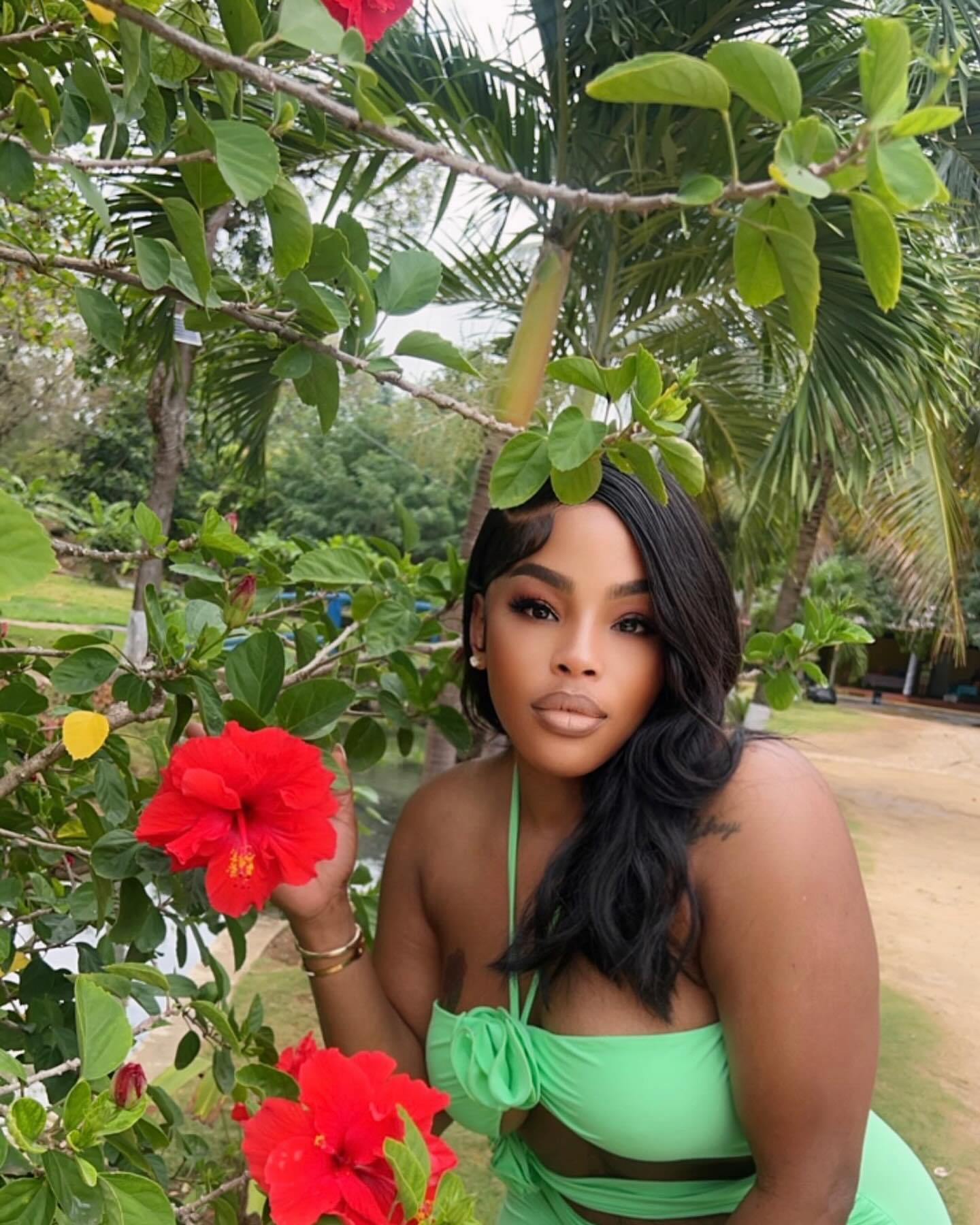
Hibiscus isn’t merely the national flower of Haiti; it’s also one of the Caribbean’s most prized African beauty secrets, renowned for bestowing glowing, radiantly smooth skin upon its users.
The plant’s seeds and flowers are crushed into a paste, yielding a slimy consistency that works wonders on hair and skin, leaving them smooth, soft, and beautifully textured.
Loaded with calcium, iron, thiamin, and hydroxy acids (both AHA and BHA), hibiscus treats dandruff, speeds up the healing process, slows down collagen degradation, prevents premature graying, hydrates the skin, and conditions against frizz, dryness, and breakage.
Using Hibiscus On Hair:
- Blend 3 tbsp of ground hibiscus leaves and flowers with 8 tbsp of yogurt.
- Gently apply the mixture to your strands and scalp.
- Leave it in place for 30 minutes.
- Wash with a sulfate-free shampoo.
Using Hibiscus On Skin:
- Gather hibiscus petals and grind them into powder.
- Add a few drops of rose water to create a thick, gel-like paste.
- Apply the paste to your face.
- Leave it in place for 20 minutes.
- Rinse off with cold water and pat dry with a towel.
PSA: Some haircare experts recommend adding natural ingredients like aloe vera gel, coconut milk, or honey to your mixture for optimal results. YouTube hair influencer @simplyshell demonstrates her regimen here:
There you have it folks.
What African beauty secret have you been keeping under your sleeve?
Comment below!
